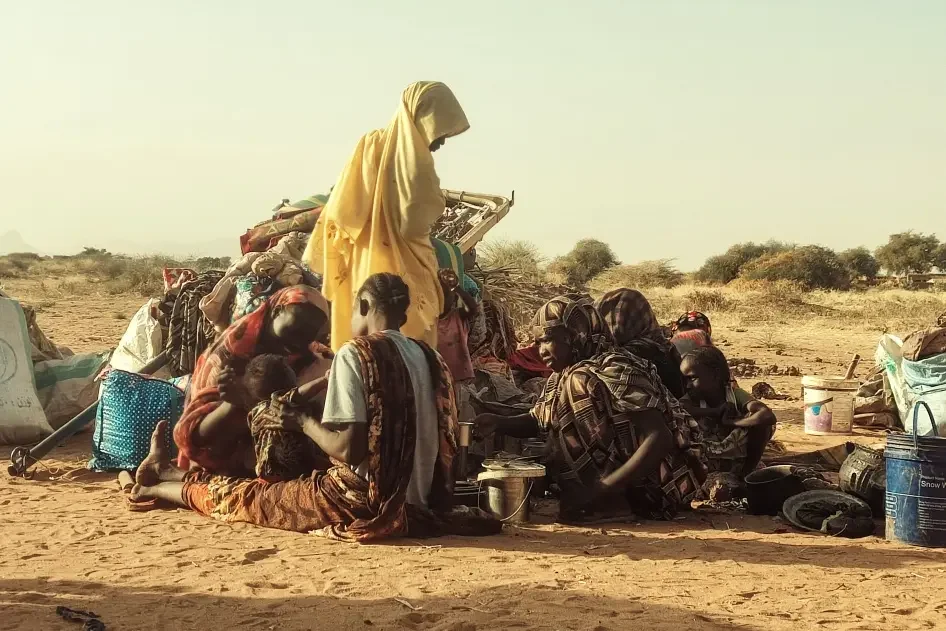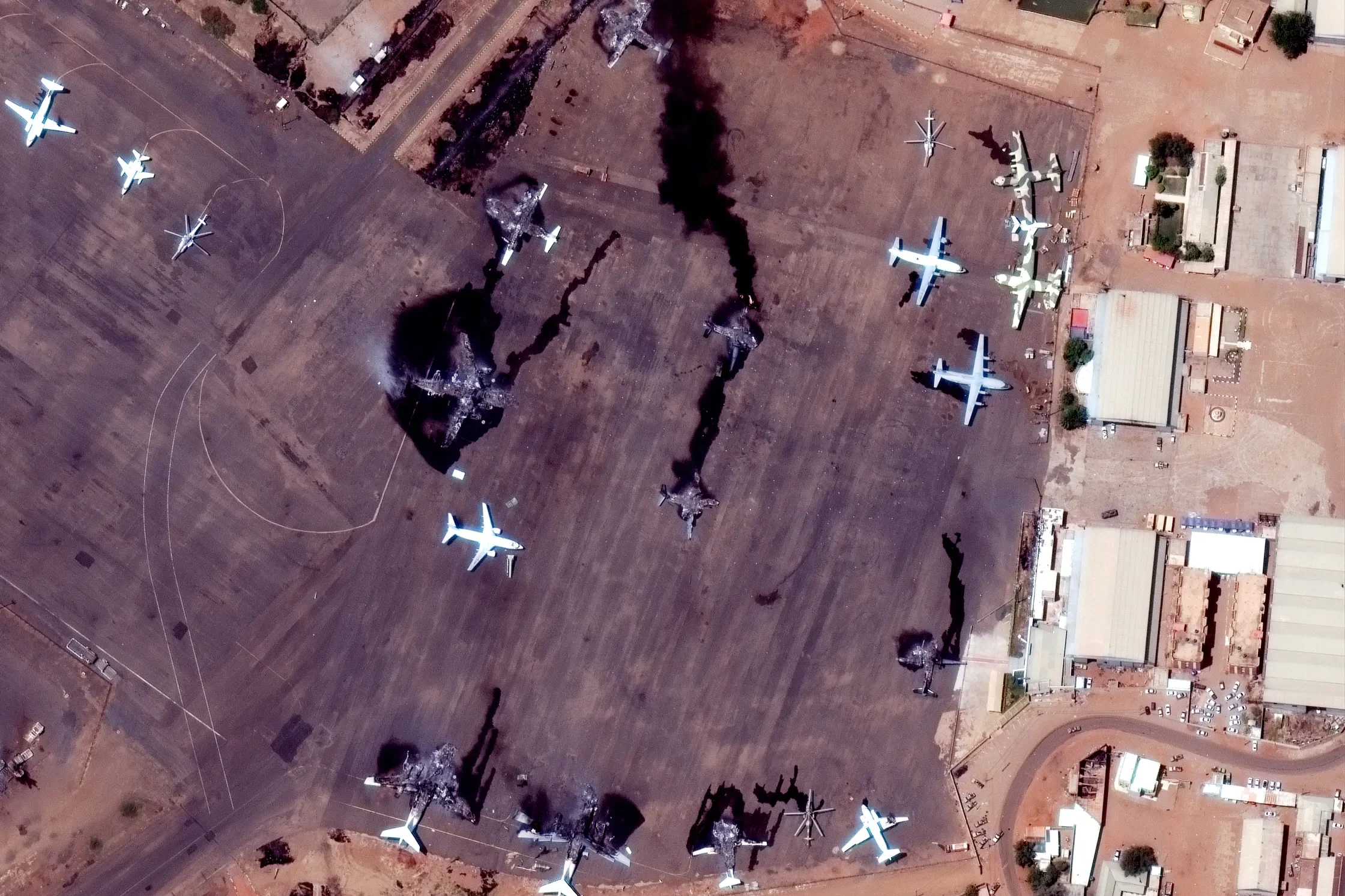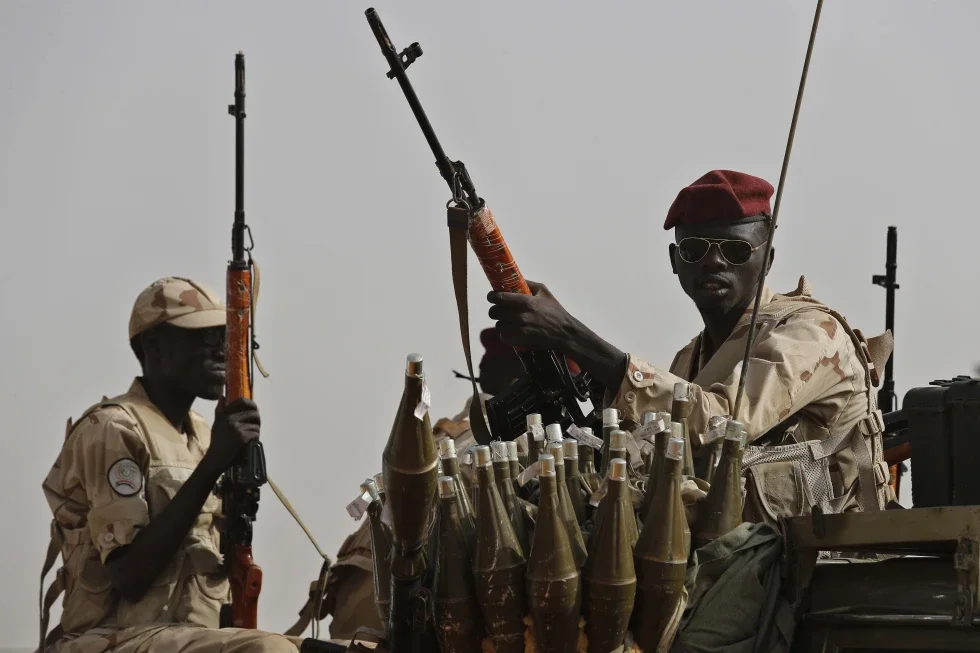Sudan’s Silent Genocide: El Fasher’s Fall and the World’s Muted Response
Displaced people who fled the Zamzam camp, gather near the town of Tawila in North Darfur, Sudan, February 14, 2025. [Human Rights Watch]
On October 26, 2025, the paramilitary Rapid Support Forces (RSF) captured El Fasher, the Sudanese Armed Forces' (SAF) final major stronghold in the western Darfur region. The fighting has devastated the country since 2023: displacing more than 14 million people, killing more than 40,000, and pushing more than 24.6 million people to the brink of famine. Sudan’s conflict extends beyond a purely internal conflict; it is shaped in part by foreign involvement, resource-driven incentives, and historical ethnic divisions.
For months, El Fasher has been surrounded by RSF forces that have systematically blocked aid convoys, shelled residential areas, and cut off food, medicine, and water. Satellite images analyzed by Yale University’s Humanitarian Research Lab show evidence of freshly dug mass graves with “blood visible from space”. A survivor told Al Jazeera that “the streets were full of dead people,” recalling an RSF fighter shouting, “Kill them all.” The UN human rights office has received similarly disturbing accounts, with spokesperson Ravina Shamdasani confirming that at least 25 women were gang-raped in a displacement shelter near El Fasher University. The RSF’s campaign mirrors a grim and familiar pattern: two decades ago, the Janjaweed militias carried out ethnic cleansing against non-Arab communities in Darfur, and today those same tactics are being repeated on an even larger scale. Reports from Al Jazeera and NBC News detail mass executions, rape, looting, and the systematic targeting of civilians, particularly those from the Fur, Masalit, and Zaghawa ethnic groups.
Satellite imagery analyzed by the Conflict Observatory at Yale University reveals extensive destruction in Khartoum due to ongoing conflict, including attacks on a market and a hospital which researchers estimate have left hundreds of people dead. [Wired].
Politically, El Fasher’s fall is an irreversible blow to the SAF’s authority in western Sudan. With the RSF now firmly in control of vast territories, significant aspects of Sudan’s political and territorial landscape are increasingly shaped by foreign powers. Analysts refer to this as “strategic corruption”: foreign states colluding with Sudanese elites to exploit the country’s natural resources, particularly gold, in exchange for military backing.
The United Arab Emirates (UAE) plays one of the most crucial roles: as the largest buyer in Sudan’s gold trade through gold-smuggling networks and a channel for RSF funding. Despite a UN arms embargo, the UAE has reportedly provided military and financial support to the RSF. Gold accounts for nearly half of Sudan’s total exports, and according to the Central Bank of Sudan, almost 97% of the country’s official gold exports – worth $1.52 billion – were shipped to the UAE. Reports also suggest the UAE has relied on covert logistics, including mercenaries, and has used humanitarian shipments as cover for arms transfers and foreign fighters. Russia has also entrenched itself in Sudan’s conflict by supplying arms and strategic support to both the RSF and the SAF as it tries to negotiate for a naval base at Port Sudan, an opportunity for Moscow to secure a long-term presence on the Red Sea. Other countries – such as Egypt, China, and Saudi Arabia – have also collectively done more than prolong the war, they have reshaped Sudan’s political economy.
Sudanese soldiers from the Rapid Support Forces unit, led by Gen. Mohammed Hamdan Dagalo, the deputy head of the military council, secure the area where Dagalo attends a military-backed tribe’s rally, in the East Nile province, Sudan, on June 22, 2019. [AP News].
The international community’s failure to respond meaningfully has drawn growing criticism. The United Nations and the African Union have condemned the violence but have stopped short of decisive action or effective interventions. However, the International Criminal Court (ICC) announced it is investigating the RSF’s actions in El Fasher as potential “war crimes and crimes against humanity”. But as legal proceedings move slowly, conditions worsen on the ground. The United States has enlisted Egypt, Saudi Arabia, and the UAE in a mediation group known as the Quad, which recently proposed a peace plan calling for a three-month humanitarian ceasefire followed by a nine-month political process. The RSF has said it accepts the truce, while the Sudanese army insists it will agree only if the RSF withdraws from civilian areas and disarms in line with earlier proposals. The Trump administration said they are working with both sides to finalize an agreement, but declined to comment on whether the U.S. will be pressuring the UAE to halt its financial and military support for the RSF. A handful of international leaders, such as Turkish President Recep Tayyip Erdoğan, called on the Muslim world to help stop the bloodshed in Sudan. Efforts at ceasefires, humanitarian access, and accountability are ongoing but have not sufficiently met the scale of the disaster.
For the time being, the RSF shows no sign of slowing its campaign. Having consolidated control over most of western Sudan, it threatens to move eastward, further fragmenting the country and deepening an already catastrophic humanitarian crisis. Analysts warn that without decisive international pressure, including foreign countries withdrawing their support from both sides, sanctions, arms embargoes, and accountability for RSF leaders – Sudan could disintegrate entirely.



